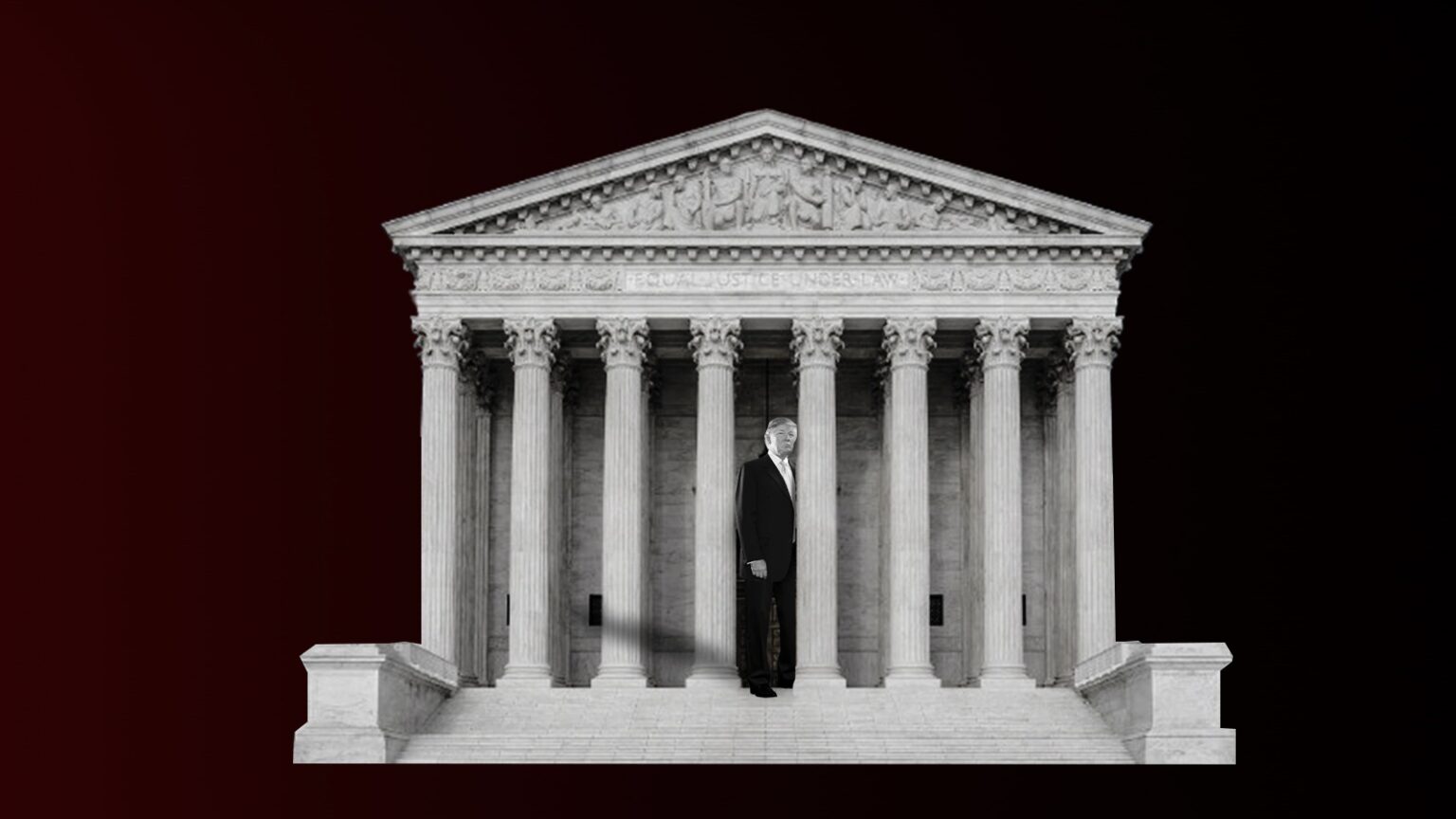The US Supreme Court has been petitioned to determine whether former President Donald Trump can face charges for alleged crimes committed during his presidency. Jack Smith, the former war crimes prosecutor and current special counsel overseeing two criminal investigations involving Trump, formally requested a prompt ruling on the matter. The Supreme Court has subsequently agreed to review the request and has set a deadline of December 20 for Trump’s legal team to submit a response.
While the judges did not specify the mechanism or venue for his trial if approved, former President Donald Trump, aged 77, is slated to face trial in March on federal charges linked to an alleged conspiracy to alter the results of the 2020 election. Trump’s legal team has consistently emphasized that former presidents are immune from criminal charges regarding their official duties. Despite this, a lower court judge rejected this argument earlier in the month, allowing the case to proceed. Trump has indicated his intention to appeal this decision.
The unusual and direct request presented by Counselor Smith on Monday to the highest court in the United States is an effort to sidestep all lower courts and prevent any potential delays to the scheduled trial date on the fourth of March next year. Counselor Smith framed the case as addressing a crucial question central to democracy: whether a former president has absolute immunity from federal prosecution for crimes committed while in office, or if constitutional protections shield them from such prosecution. He asserted that Trump’s assertions about presidential immunity are “profoundly untrue” and contended that “only this court can resolve them once and for all.”
In response to Smith’s move, the Trump campaign has accused him of a “desperate attempt” to expedite the process by swiftly taking it to the Supreme Court, seeking to bypass the usual appeals procedure. A spokesperson for the campaign argued, “There is absolutely no reason to rush this sham trial, otherwise it is aimed at damaging President Trump and tens of millions of his supporters.” It’s uncommon for plaintiffs to seek the Supreme Court’s intervention before a lower appellate court has ruled on a matter, underscoring the urgency in this case. If Trump’s appeal succeeds in postponing the trial until after the November 2024 election, it raises the prospect of the former president returning to the White House before the case is fully adjudicated, leading to a new set of legal complexities.
The question is: Can these legal complexities affect Trump’s political future or impact his presidential candidacy? Historical experience, however, suggests Trump is used to overcoming such obstacles, emerging victorious or at least surviving defeat.
As the 2024 Republican Party primaries are just five weeks away, Trump is currently enjoying a substantial lead in the polls over his competitors for the party’s nomination. Simultaneously, he is contending with multiple legal challenges, including a second lawsuit from Counselor Smith, alleging the misuse of classified materials and documents post his term. In the event of Trump’s victory and return to the White House, he could potentially pardon himself in the two cases initiated by the special counsel, possibly leading to the suspension of two state-level criminal cases against him. The indictment in the 2020 election case includes four criminal charges against Trump, notably conspiracy to defraud the US government.
The filing of a case by the court’s lawyer on Monday is a continuation of his earlier accusation that Trump is attempting to “delay and disrupt” the trial at the earliest available opportunity. The federal election case has progressed more swiftly than the four criminal cases against Trump, suggesting that it is likely to be the first one he will face trial for.
The bottom line: Trump has been facing dilemmas throughout his political career. He has gone through several impeachments, two of which were conducted during his presidency. Strikingly, he survived the two trials. The question thus is: Will Trump survive the current legal dilemma, or will it be the final straw leading to his ultimate downfall? This remains to be seen.



